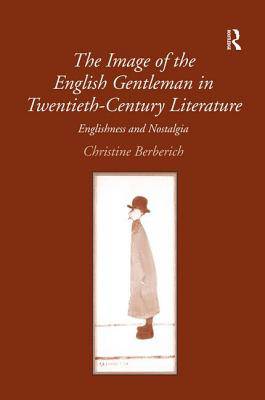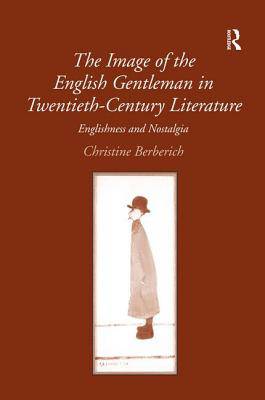
- Afhalen na 1 uur in een winkel met voorraad
- Gratis thuislevering in België vanaf € 30
- Ruim aanbod met 7 miljoen producten
- Afhalen na 1 uur in een winkel met voorraad
- Gratis thuislevering in België vanaf € 30
- Ruim aanbod met 7 miljoen producten
Zoeken
The Image of the English Gentleman in Twentieth-Century Literature
Englishness and Nostalgia
Christine Berberich
Hardcover | Engels
€ 195,95
+ 391 punten
Uitvoering
Omschrijving
Studies of the English gentleman have tended to focus mainly on the nineteenth century, encouraging the implicit assumption that this influential literary trope has less resonance for twentieth-century literature and culture. Christine Berberich challenges this notion by showing that the English gentleman has proven to be a remarkably adaptable and relevant ideal that continues to influence not only literature but other forms of representation, including the media and advertising industries. Focusing on Siegfried Sassoon, Anthony Powell, Evelyn Waugh and Kazuo Ishiguro, whose presentations of the gentlemanly ideal are analysed in their specific cultural, historical, and sociological contexts, Berberich pays particular attention to the role of nostalgia and its relationship to 'Englishness'. Though 'Englishness' and by extension the English gentleman continue to be linked to depictions of England as the green and pleasant land of imagined bygone days, Berberich counterbalances this perception by showing that the figure of the English gentleman is the medium through which these authors and many of their contemporaries critique the shifting mores of contemporary society. Twentieth-century depictions of the gentleman thus have much to tell us about rapidly changing conceptions of national, class, and gender identity.
Specificaties
Betrokkenen
- Auteur(s):
- Uitgeverij:
Inhoud
- Aantal bladzijden:
- 218
- Taal:
- Engels
Eigenschappen
- Productcode (EAN):
- 9780754661269
- Verschijningsdatum:
- 28/12/2007
- Uitvoering:
- Hardcover
- Formaat:
- Genaaid
- Afmetingen:
- 156 mm x 233 mm
- Gewicht:
- 559 g

Alleen bij Standaard Boekhandel
+ 391 punten op je klantenkaart van Standaard Boekhandel
Beoordelingen
We publiceren alleen reviews die voldoen aan de voorwaarden voor reviews. Bekijk onze voorwaarden voor reviews.











